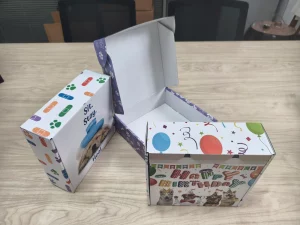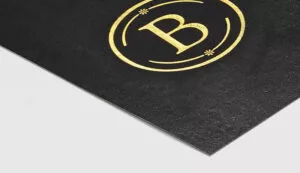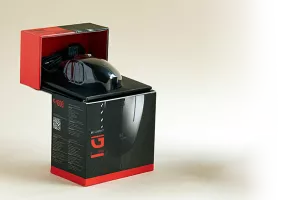Eco-Friendly Packaging Materials: Helping Your Business Go Green
In an age where consumers are more environmentally conscious than ever, businesses must adopt eco-friendly packaging solutions to stay relevant and responsible. Not only does this shift help reduce the environmental impact of packaging, but it also boosts your brand’s image. This article explores various packaging materials that can help your business go green and dives into practical strategies for implementing sustainable packaging practices.
Table of Contents
What Are Eco-Friendly Packaging Materials and Why Are They Important?
Eco-friendly packaging materials refer to substances used for product packaging that reduce the environmental impact compared to conventional materials. These materials are designed to have minimal packaging waste and are often recyclable, biodegradable, or compostable.
Adopting eco-friendly packaging is crucial because it helps to:
- Reduce waste that ends up in landfills.
- Lower carbon footprints by using less energy in production.
- Meet consumer demand for sustainable products.
Switching to these materials is a significant step in helping your business go green and contributing to a healthier planet.
How Can Sustainable Packaging Benefit Your Business?
Sustainable packaging offers multiple benefits for businesses, including:
- Enhanced Brand Image: Consumers are more likely to support brands that demonstrate environmental responsibility.
- Cost Savings: Some eco-friendly materials, like kraft paper, can be more cost-effective in the long run.
- Regulatory Compliance: As governments impose stricter environmental regulations, using sustainable materials ensures compliance and avoids penalties.
For instance, Kraft Paper Bags are an excellent eco-friendly packaging solution. You can explore similar options at Custom Kraft Paper Bags.

Types of Eco-Friendly Packaging Materials
There are several eco-friendly packaging materials available:
- Kraft Paper: Durable and biodegradable, suitable for a variety of packaging applications.
- Biodegradable Packaging: Materials like biodegradable packing peanuts break down naturally without harming the environment.
- Recycled Packaging: Using recycled materials cuts down on waste and conserves natural resources.
- Reusable Packaging: Items designed for multiple uses, reducing the need for single-use packaging.
Each packaging material offers unique benefits that can be tailored to your business needs.
What is Compostable Packaging?
Compostable packaging is designed to break down into non-toxic components in composting conditions. This type of packaging includes:
- Cornstarch Packaging: Made from the renewable resource of corn, it’s an environmentally-friendly alternative to plastics.
- Green Cell Foam: A biodegradable material made from cornstarch that is compostable.
The benefits of compostable packaging include:
- Reduced landfill waste: Decomposes naturally, enriching the soil.
- Less environmental impact: Produces fewer greenhouse gases compared to traditional plastics.
Exploring Innovative Packaging Solutions: Mushroom Packaging and More
Innovative materials like mushroom packaging offer sustainable alternatives to traditional packaging:
- Mushroom Packaging: Made from fungi and agricultural waste, it’s fully biodegradable and can replace Styrofoam.
- Plant-Based Materials: Items like bags and containers made from bamboo or sugarcane.
These materials are not only eco-friendly but also versatile for various packaging needs.

The Importance of Recyclable Packaging
Recyclable packaging plays a vital role in reducing waste and supporting the circular economy. Benefits include:
- Resource Conservation: Reusing materials reduces the need for virgin resources.
- Lower Environmental Impact: Requires less energy to process compared to producing new materials.
Examples include:
- Corrugated Boxes: Ideal for shipping, they are strong and recyclable.
- Cardboard Coffee Boxes: Biodegradable and perfect for food packaging.
How to Implement Reusable Packaging in Your Business
Implementing reusable packaging can effectively reduce waste and cut costs:
- Returnable Packaging: Encourage customers to return packaging for reuse.
- Durable Materials: Invest in materials designed for multiple uses.
Promote reusable packaging by:
- Incentivizing Returns: Offer discounts or rewards for returning packaging.
- Educating Consumers: Inform customers about the benefits of reusing packaging.
Advantages of Using Kraft Paper for Packaging
Kraft paper is a robust packaging material with several advantages:
- Biodegradable: Breaks down naturally without causing harm.
- Cost-Effective: Less expensive compared to some other materials.
- Versatile: Suitable for various applications, from shipping boxes to food packaging.
To see how kraft paper can be utilized, check out Kraft Product Boxes with Logo for customized solutions.

Strategies for Reducing Packaging Waste
Reducing packaging waste is essential for sustainability. Here are some strategies:
- Optimize Packaging Design: Minimize the material used without compromising protection.
- Use Biodegradable Materials: Switch to materials that decompose naturally.
- Implement a Recycling Program: Encourage recycling among consumers and within your business.
These steps help minimize the environmental footprint of your packaging.
How to Make the Switch to Eco-Friendly Packaging?
Making the switch to eco-friendly packaging involves several steps:
- Assess Current Materials: Evaluate your current packaging to identify areas for improvement.
- Choose Suitable Eco-Friendly Materials: Select materials like recycled paper or biodegradable plastics.
- Partner with Sustainable Suppliers: Work with suppliers who prioritize environmental responsibility.
- Educate and Involve Stakeholders: Ensure your team and customers understand the benefits of the switch.
Switching to eco-friendly packaging not only contributes to environmental conservation but also aligns your business with growing consumer demand for sustainability.
Key Takeaways
- Eco-Friendly Packaging Materials: Essential for reducing environmental impact and meeting consumer expectations.
- Sustainable Packaging Benefits: Enhances brand image, cost-effective, and ensures regulatory compliance.
- Innovative Solutions: Materials like mushroom packaging and biodegradable packing peanuts offer exciting alternatives.
- Reusable and Recyclable Packaging: Vital for a circular economy and reducing waste.
By incorporating these strategies and materials, businesses can play a pivotal role in environmental conservation while meeting their packaging needs. Make the switch today and be a part of the sustainable movement!








